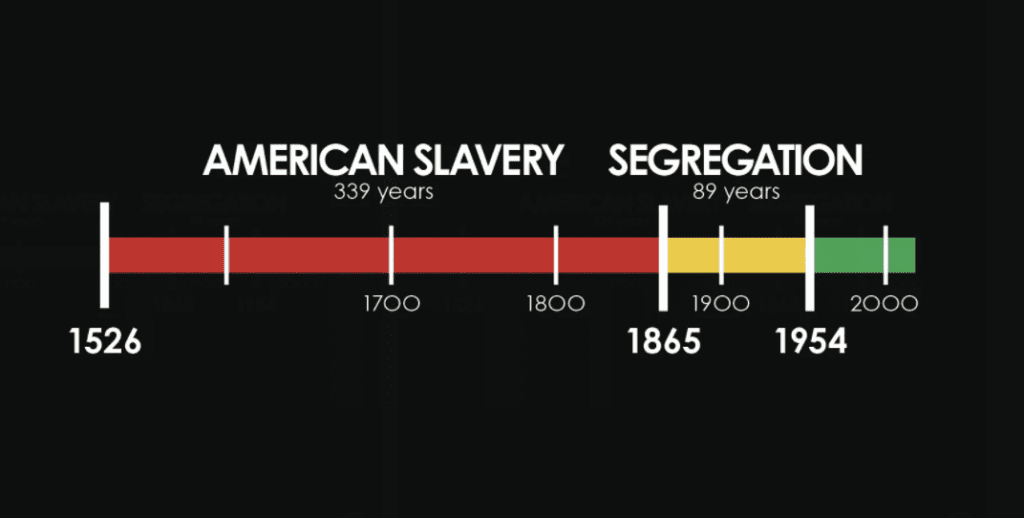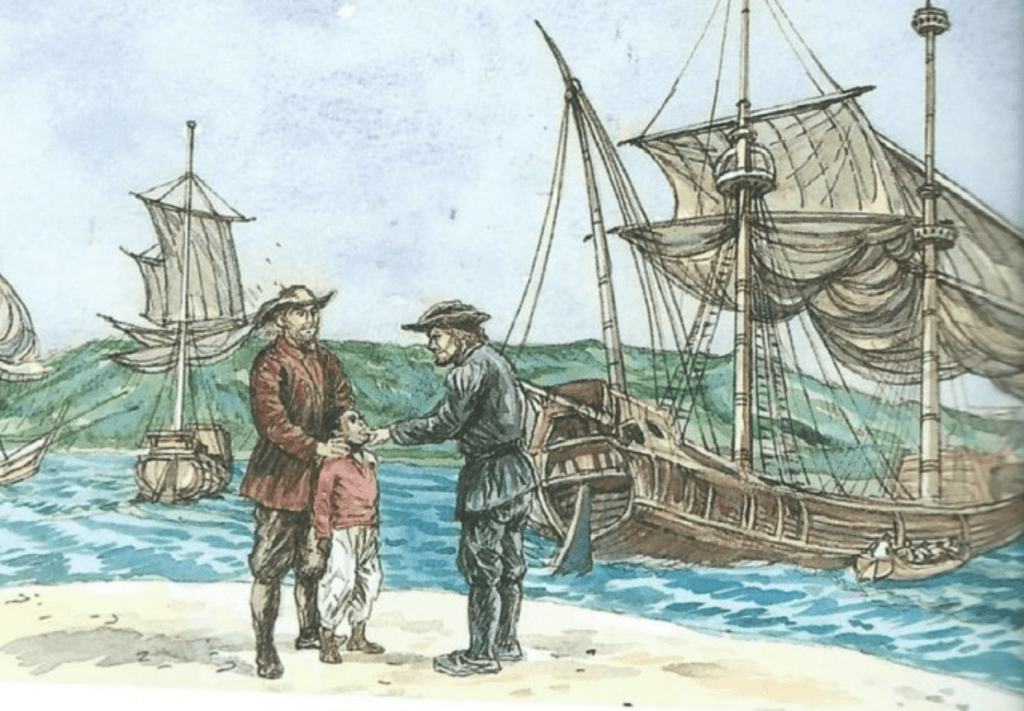American History is a part of Canadian history.
As much as many Canadians like to take a holier than thou position as if we’re a whole lot different from America – the truth is; our history is very well connected. Many of the Black people who were enslaved in America escaped to Canada through the underground railroad.
This is true.
This is what is taught in schools.
This is what most Canadians know.
It’s a thing of pride for many Canadians… And it should be.
But that reality doesn’t erase the fact that many of the Black people who escaped from the United States and settled in Canada had to leave their families and loved ones behind. It doesn’t erase the fact that many died on their way to Canada. It doesn’t erase the fact that many of them were met with very dire circumstances.
And it shouldn’t be erased that much of the challenges associated with Black Canadians today are very much connected to the fact that Black people were enslaved for 339 years:
Don’t get me wrong…
There’s no question that The Underground Railroad helped tens of thousands of enslaved Black people escape to British North America (ie. Canada) after slavery was abolished in the British Empire. There’s also no question that thousands of Black people in the American colonies who were loyal to Great Britain were granted freedom in the British Empire after the American War of Independence.
But what’s often overlooked is the fact that loyalists who immigrated to Canada after the War of Independence were allowed to bring the Black people whom they enslaved with them. It’s also overlooked that slavery was legal in New France and in British North America (aka Canada) until 1834.
For those unaware, Juneteenth is a celebration of the end of the enslavement of Black people throughout the US. And while Canada may have ended slavery prior to the US; the effects transcended.
Here’s a bit of a history lesson rarely taught in school:
The first enslaved African brought to Canada was a 7 year-old boy from Madagascar named Olivier Le Jeune. He arrived in 1628. It would be another 206 years before slavery was finally and completely abolished across Canadian colonies:
While Canadian weather didn’t permit for cotton fields or sugar plantations, the treatment of enslaved Black people is historically documented as being no better than elsewhere. The life expectancy was low, and the cruelty was similar. History shows that there was even a time when slavery was abolished in certain northern states and enslaved Black people throughout Canada would try to escape in order to be free.
The next talking point that many make is that slavery was so long ago. It was. But the length of time in which slavery and segregation took place is longer than the amount of time in which it hasn’t. Even in Canada… And the impact that slavery has had on Canadian history and treatment of Black people cannot be denied.
Here’s a few dates and examples of situations in Canada’s history that are often overlooked:
- In Quebec, between 1629 and 1833, there were a reported 4,185 enslaved Black and First Nations people. Many lived in Quebec City, where they were kept in the homes of wealthy and prestigious families.
- Records show that in the 1790s there were between 1,200 and 2,000 enslaved Black people in New Brunswick, Nova Scotia and P.E.I., about 300 in what is now known as Quebec, and up to 700 in what is now known as Ontario.
- The first mayor of Saint John, New Brunswick, Gabriel G. Ludlow enslaved Black people. While serving as the mayor from 1785 until 1795, he introduced racist laws that would exist until 1870. For example, Black people could not take an oath to gain the status of free men and were prohibited from practicing the trade or selling of goods in the city. Black people were barred from fishing at Saint John Harbour, and could not live within the city limits unless they were employed as a servant or labourer.
- In December 1816, in a letter to his superior Lord Bathurst, George Ramsay (Founder of Dalhousie University) wrote that the Black Refugees in Nova Scotia were: “Slaves by habit & education…their idea of freedom is idleness and they are therefore quite incapable of industry.”
- In Nova Scotia, Black people established a district known as Africville shortly after the War of 1812. The residents owned their land, their homes and their businesses. But even though they paid taxes, the community had no running water, sewage system, police or fire departments. The community was forcibly dismantled from 1964 to 1969, houses bulldozed and their residents resettled into public housing without consent or proper compensation
- The University of Toronto denied admission to Black applicants in the 1920s. In a letter of correspondence regarding the 1923 application of Lean Elizabeth Griffin, an African American woman, Assistant Dean and Secretary of the Faculty of Medicine Edward Stanley Ryerson informed Registrar James Brebner, “When she [Lean Elizabeth Griffin] wrote for an application we did not realize she was colored. Colored students are a problem when they get to the hospital and we would be glad if you could avoid accepting her application.”
- In 1923, the Edmonton city council passed an ordinance that barred Blacks from swimming in city pools after an outcry from the white public and the Edmonton Exhibition Association which opposed mixed bathing. Skating rinks also refused admission to Blacks, no matter the age.
- The last racially segregated school in Nova Scotia closed in 1983 in Guysborough County
So while many of our History books have ignored the realities of racism and the impacts of slavery in Canada – the internet shall not… Thus, moving forward all of my companies will celebrate Juneteenth as a company-recognized paid annual holiday. For those unfamiliar, Juneteenth is a celebration of the end of the enslavement of Black people throughout the US. While Canada may have ended slavery prior to the US; the effects transcended.
Moving forward my hope is that my colleagues and other entrepreneurs will use June 19th to:
- Reflect on our countries past and put in work towards creating a better future
- Invest time in learning about the history and impact of slavery, segregation & racism (Resources)
- Donate time to work with groups, associations, organizations supporting Black people
- Inform and educate others on Juneteenth and why it’s celebrated (History)
- Celebrate Juneteenth with family, friends, associates and community members
The official Juneteenth policy:
- Juneteenth must be observed on June 19th
- Our offices will be closed
- Employees will be paid for the day


